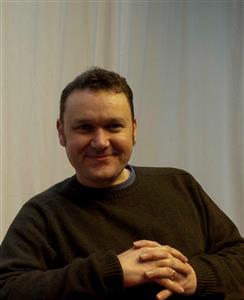[contextly_auto_sidebar]

Demo outside parliament, TUC Day of Action on Blacklisting in 2012
Any court gives short shrift to noisy public displays in its precincts. But after seven years of a very vocal campaign, it was always going to difficult to keep blacklisted construction workers quiet when their court case came to a conclusion. The chants of ‘No justice, no peace’ suggested that this was not the end of the affair.
- You can read Dave Smith on the Justice Gap (Six years and still waiting) on the legal implications of blacklisting
Back in 2009 the Information Commissioner’s Office (ICO) raided the headquarters of a secret organisation called The Consulting Association. It had been funded by the biggest names in the building trade to keep tabs on activists for 16 years. The ICO found files on more than 3,200 people including several hundred environment activists, academics, lawyers, journalists, politicians.
The subsequent campaign against blacklisting highlighted a systemic failure by the judicial system. For one thing blacklisting was only made illegal in 2010 and then as a civil offence. Currently Alan Wainwright, who blew the whistle on the scandal in 2006 and subsequently was unable to get a job in the industry, is using the new law to sue several construction companies. It is believed to be the first such case testing this law.
However Wainwright is having to crowdfund £50,000 to pay for his legal fees.
The ICO prosecuted the man who ran the association, Ian Kerr, for breach of data protection rules and he was fined £5,000. The companies were issued with notices to essentially behave themselves. No-one internally was dismissed or disciplined.
Almost all employment tribunal claims did not even make it to court because they were ruled out of time. Some of those that did were lost because the claimant was not directly employed. Only a handful out of hundreds submitted were successful in claiming damages.
That left a class action brought by more than 700 workers against six firms. Ultimately the compensation offered by the companies was such that the claimants had to accept. It was a case that money did trump being able to have representative from the companies in the dock – much to the chagrin of many campaigners.
When Liverpool construction worker Roy Bentham was refused leave to carry on as a sole litigant that effectively brought an end to any legal proceedings in this area. There is still the possibility of the police investigating a claim of perverting the course of justice because of evidence gathered during the civil action.

‘Blacklisted’ book cover – more www.newint.org/books/politics/blacklisted-secret-war
Pitchford
Unless a public inquiry takes place, it is the Pitchford inquiry where attention now focuses. The judge-led inquiry was ordered by Theresa May into the activities of the Special Demonstration Squad (SDS). This secret unit placed officers undercover for years in political campaigns. Notoriously some of its officers had sexual relations with female activists in order to improve their cover story. In the case of officer Bob Lambert he even had a child with an activist, while also having family. The SDS spied not just on the far right and animal rights activists but black justice campaigns and trade unions.
In October the Blacklist Support Group was granted core participant status giving them funded-support to take part. There is still some scepticism about how much sunlight Pitchford will bring but this status at least made that more likely.
The push at the moment is to get Pitchford to look wider than just England and Wales. Within the last month it has been revealed that Rosie Kane, a former member of the Scottish Parliament, and Dr Nick McKerrell, a law lecturer at Glasgow Caledonian University, were on the blacklist. They join dozens of Scottish activists already identified including Elleanor Hutson. She was part of protests at the G8 summit at Gleneagles in 2005 and unknowingly worked alongside undercover police officer Mark Kennedy. Also operating at Gleneagles were SDS officers Marco Jacobs and Lynn Watson.
Meanwhile over the last few months it has become clear that at least four Scottish police officers were involved in undercover operations against political activists. Eleanor Mitchell, who was head of Police Scotland’s Professional Standards Department before retiring in 2016, ex-Detective Inspector Paul Hogan and former CID officer Ronnie Liddle have all been identified. The most senior is Chief Constable Phil Gormley who was previously head of Special Branch and on the committee who oversaw the Special Demonstration Squad.
MSPs say this shows Pitchford’s inquiry needs to extend into Scotland if it is to make a meaningful report. In fact Kennedy ranged across Europe as he infiltrated anti-globalisation campaigns and made links with local police forces. Some have argued Pitchford should also look north and south of the Irish border and Germany and Italy in its evidence gathering.
In a month which saw the Hillsborough campaigners vindicated after 27 years, the alliance which has grown up to challenge blacklisting and the activities of secret police are in it for the long haul.






